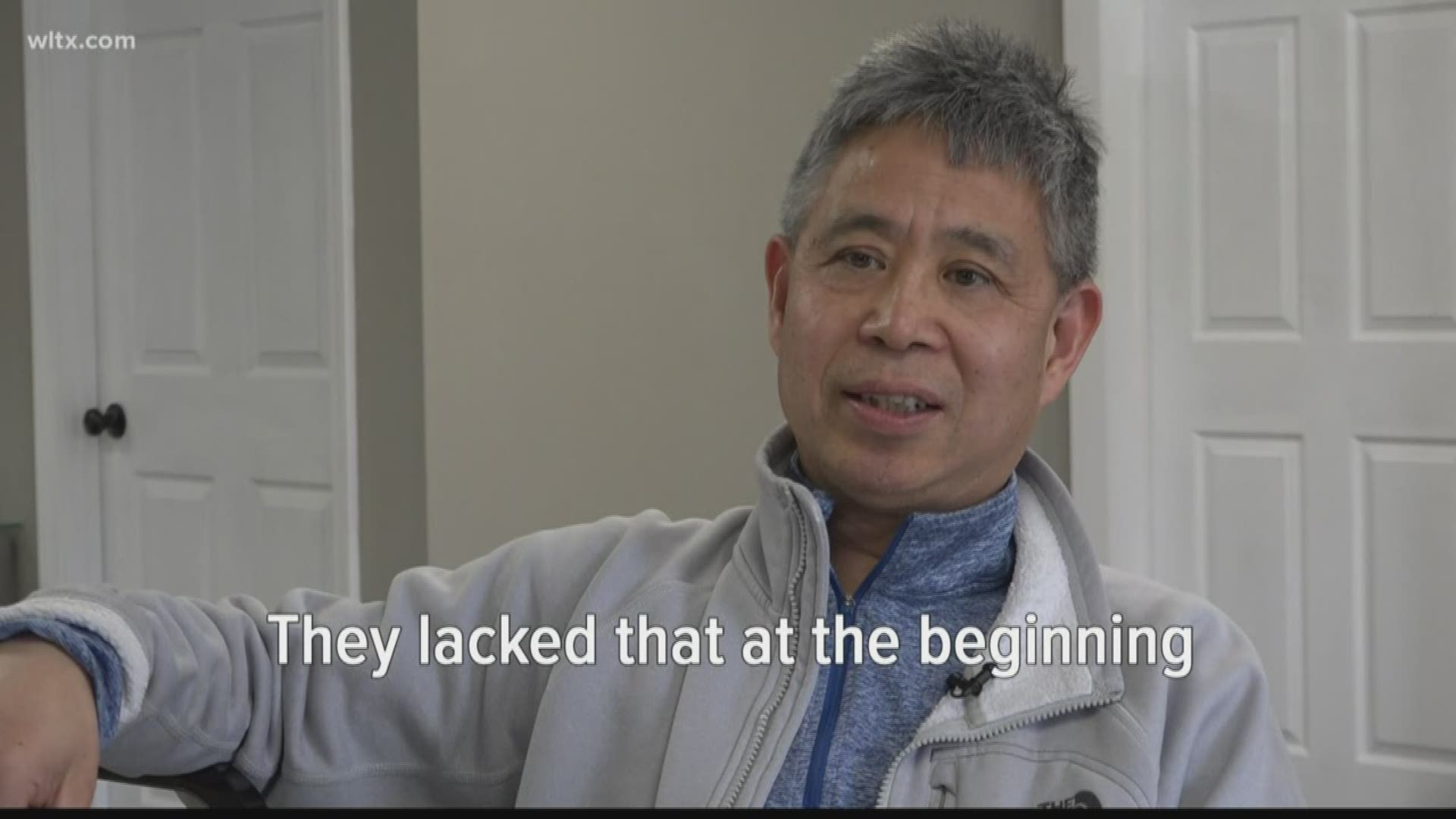The local Chinese community is on standby, ready to provide support as coronavirus cases pop up in the Midlands.
At the end of January, a month deep into the coronavirus outbreak in Wuhan, China, local groups decided to take action.
"The community got together and we thought we needed to do something," said Dr. Jiang Zhang of the Chinese Christian Church of Columbia.
Five different Chinese groups and organizations in Columbia joined forces to start the "Coronavirus Relief Fund".
The groups included the Chinese Association of Columbia, Chinese Christian Church of Columbia, Chinese School of Columbia, Confucius Institute of the University of South Carolina and Living Stone Chinese Christian Church.
"I know once the funds started, there would be a lot of helping hand, but I didn't expect that to happen so fast," said Lin Wang, a Vice President of the Chinese Association of Columbia.
Within weeks, after sharing their efforts by email, on social media and by word of mouth, the groups raised nearly $17,000. But they didn't send the cash to China, they instead used the money to buy what the country needed immediately.
"This is once-in-a-century thing," said Zhang. "It's almost impossible to prepare for something like that."
Dr. Zhang's training background is in medicine, and he once worked for the CDC in China. He says at the beginning of the outbreak, many young doctors died after not wearing masks to care for coronavirus patients.
"It happened with regular doctors, not infectious disease doctors. Eye doctors, dermatologists, who were never trained to deal with infectious diseases," said Zhang.
After communicating with people abroad, Zhang says they knew exactly what to send.
"We sent masks and isolation gowns, which they lacked in the beginning at the hospitals," he said. "A lot of hospitals don't have adequate equipment to deal with severe patients."
In total, the groups purchased 20,300 masks and protective gowns. The recipients included Hunan Xiangxi county hospital, Hubei TianMen Hospital, Hubei Xiaogan, Union Hospital of Tongji Medical University and the Hubei Wuhan Non-profit community.
The remaining $6,400 will be sent to the non-profit organization NAMCM where they are pooling the money to purchase medical equipment for the ICU units of the hospitals.
Since the outbreak, support is also pouring in for Chinese students at USC.
Lin Wang works to bring more international students to USC, serving as the International Program Coordinator in the College of Hospitality, Retail and Sport Management.
"[We help] them to do some grocery shopping, talk to them," he said. "Some students, their family is in Wuhan where the whole thing started...some of them worry about their courses here at USC...I still have one student in China, so I keep in constant communication with her."
One of the more popular concerns from students, Wang says, is whether they will graduate on time or continue with internships on schedule.
"I know this is a tough situation, but for the students and many of the folks here, I think they learn how to be strong, how to be tough and survive this - and at the same time, prepare for what's going on," said Wang.
Since fundraising stopped, these local organizations are continuing to share information about the virus online while encouraging everyone to stay informed.
"So people are better prepared. Not to be panicked, but be prepared," said Wang.
Both Wang and Dr. Zhang have family members in China. They were informed that many schools are getting back in session this week, and the country is slowly returning back to normal.
"Our focus is going to be in the U.S. now," said Zhang. "If anyone needs help, our community's ready to help."
Due to the spread of the coronavirus in parts of the Midlands, the Chinese Association of Columbia has canceled unnecessary gatherings to minimize the potential for spreading the disease.

